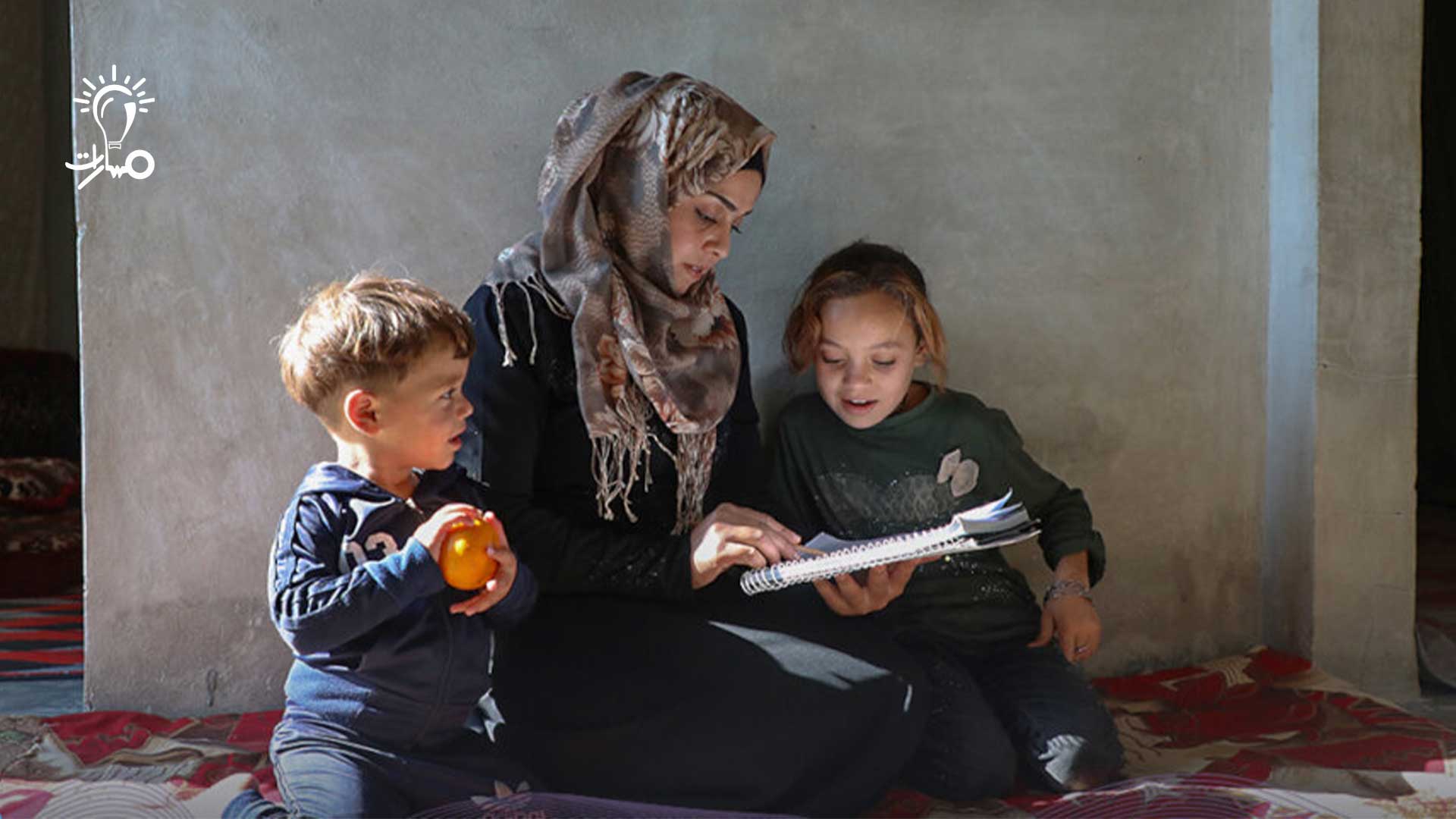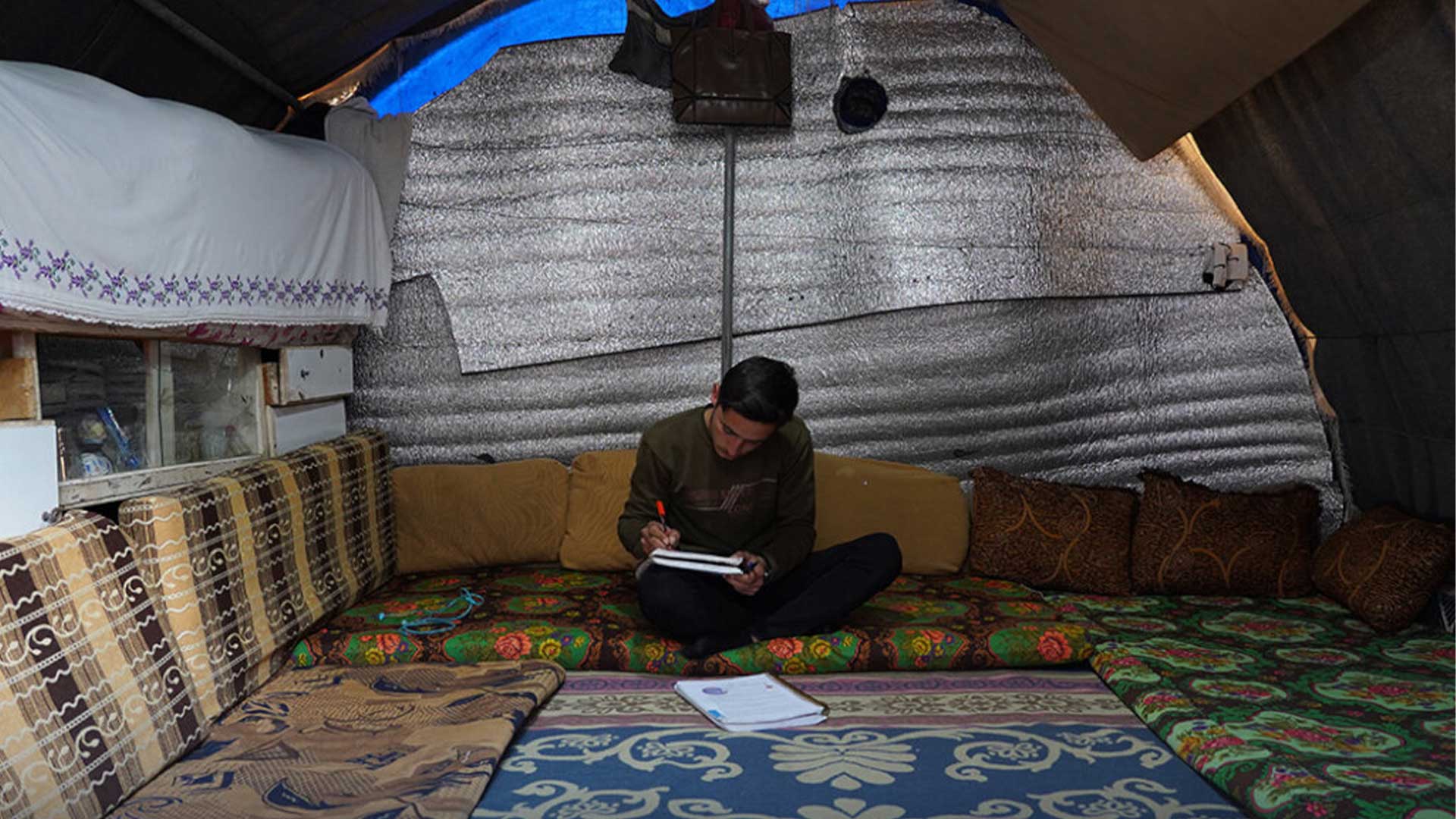Online education has become an inevitable necessity imposed by our present and needed for our future, especially in regions experiencing ongoing crises and wars, such as northwest Syria. The importance of online education was further reinforced by the COVID-19 crisis that began in 2020. According to the World Bank, the number of students who stopped attending school globally due to the COVID-19 crisis reached 1.6 billion, which is 94% of the total student population. The concept has emerged and evolved remarkably over three years, achieving tangible accomplishments.
What is Online Education and Its History
Online education is defined as a set of procedural operations to transfer knowledge to students at their place of residence or work, instead of attending an educational institution. It is closely linked to the advancements in digital technology, including sophisticated interactive programs and applications. The concept is not solely a product of the crisis; there were previous and older experiments.
In the early 1920s, educational lessons were broadcasted in Britain via radio. In the 1930s, the University of Iowa in the United States conducted educational broadcasting via television. The development of online education escalated with the advent of the internet. In the 1980s and 1990s, it became possible to use computer media and the internet in pre-university education. Online education has evolved from radio to television, video cassette tapes that transfer video and audio, then to live television broadcasting, and finally to education through digital technology, which is divided into two main types: synchronous broadcasting through specific programs and applications, and asynchronous through educational programs on platforms and channels that learners can access at their leisure.
Benefits of Online Education
The global trend towards online education is rising due to technological advancement and recognition of its benefits. Some of the reasons supporting this trend include:
- Universal Access: It provides opportunities for students who may be far from educational institutions or unable to physically attend, offering learning opportunities for all age groups and diverse categories.
- Flexibility in Scheduling: Students can organize their time based on their personal and professional needs. They can travel or work part-time while continuing their studies at convenient times.
- Seamless Transfer of Educational Materials: Through the internet and electronic educational platforms, educational materials can be easily and quickly transferred to students anywhere in the world. Lectures, instructions, and additional materials can be recorded and provided to students at their convenience.
- Enhanced Technological Interaction: Technology is constantly evolving to meet the needs of online education. There are many tools available, such as virtual classrooms, e-learning platforms, and interactive educational programs that help achieve interaction between teachers and students and stimulate effective learning.
- Providing Innovative Educational Experiences: Technology can be used to design innovative and engaging educational experiences, such as virtual reality and augmented reality, increasing student participation and interaction with educational content in new and exciting ways.
Requirements for Online Education
Online education requires a set of fundamental requirements to ensure the quality of education and achieve its goals effectively. These requirements include:
- Technological Infrastructure: A strong and reliable technological infrastructure must be provided to support online education. This includes high-speed internet connections and necessary devices like computers, tablets, and smartphones.
- Availability of Educational Content: High-quality educational content should be developed and made easily accessible to students. The content should be diverse, comprehensive, and responsive to learners’ needs.
- Proper Planning and Design: Teachers and educational institutions must plan and design the online education process well. This involves defining educational goals, designing suitable curricula, and developing appropriate assessment methods.
- Training and Support for Teachers: Appropriate training should be provided to teachers to enhance their online learning experience. This includes training in using modern technological tools.
- Integrating Various Interactive Educational Media: Integrating synchronous and asynchronous education and interactive educational programs through technology can achieve greater interaction and improve learning motivation. A World Bank report emphasized the importance of creating new links between teachers, parents, and broader local communities to form integrated, high-quality educational systems.
Challenges of Online Education
The path to online education is not always easy or straightforward in achieving the hopes and aspirations of all students, especially in technologically and economically disadvantaged countries. A UNICEF report issued in December 2020 stated that about two-thirds of the world’s children, aged between 3 and 17 years, are still deprived of internet connection at home. About 58% of school-age children from affluent or well-off families have access to the internet at home, compared to only 16% in poor families.
Several other challenges we face include:
- Lack of Access to Technology: Many students and families do not possess the necessary devices, such as smartphones and computers, affecting the students’ full participation and benefit from the online education experience.
- Weak Interaction and Communication: Communication and interaction can be more challenging in online learning. Students may find it difficult to communicate effectively with teachers and peers, affecting their understanding of concepts and development of collaboration skills.
- Need for Time Management and Motivation: Online learning requires self-motivation and independent time management by students, making it difficult for them to stay committed and dedicated to learning without a strict schedule and direct teacher support.
- Lack of Personal Interaction: While online learning offers flexibility in time and place, it may lack personal interaction between the teacher and student. Personal work and individual guidance are harder to achieve to the same extent in an online learning environment.
- Difficulty in Performance Assessment and Evaluation: There can be challenges in assessing student performance and academic achievement in an online learning environment. It can be difficult to implement traditional tests or assess active participation and group projects.
To overcome these challenges, measures must be taken to ensure strong technology and easy access to it, enhance effective interaction and communication, provide support for time management and motivation, and offer personal guidance and effective student assessment.
Online education is a vital means of disseminating knowledge amidst wars, conflicts, and the spread of epidemics. Facing technological challenges, we can overcome them through collaborative knowledge among educational institutions, providing technical solutions, training teachers, and emphasizing content quality. Despite the difficulties we face, we are capable of achieving online education in innovative and sustainable ways. Technology can be a means to expand education and make it available to everyone, regardless of the wars and conflicts sweeping the world. Let’s use technological capabilities and joint collaboration to provide updated, high-quality educational opportunities for children, youth, and adults. Education is the key to building a better future for the next generations and should not be affected by the difficult circumstances we are going through. We must continue to challenge and work together to provide fair and innovative educational opportunities for students, as they deserve to receive education and achieve their aspirations and dreams, regardless of the circumstances they face.
Fouad Al-Dik – Volunteer at Masarat Initiative





